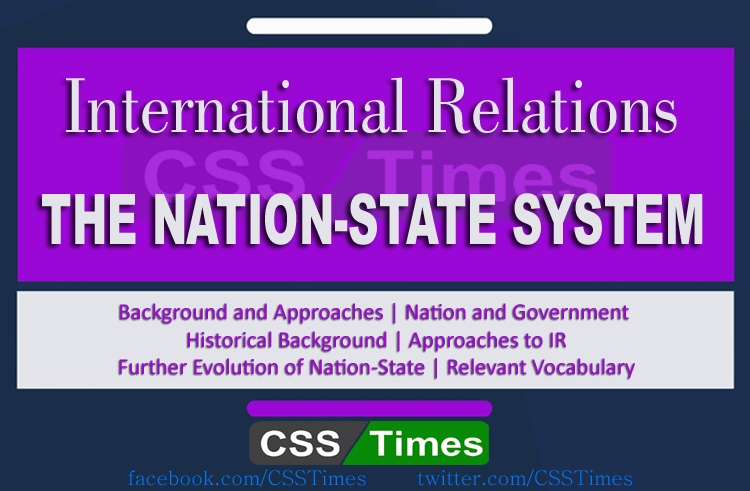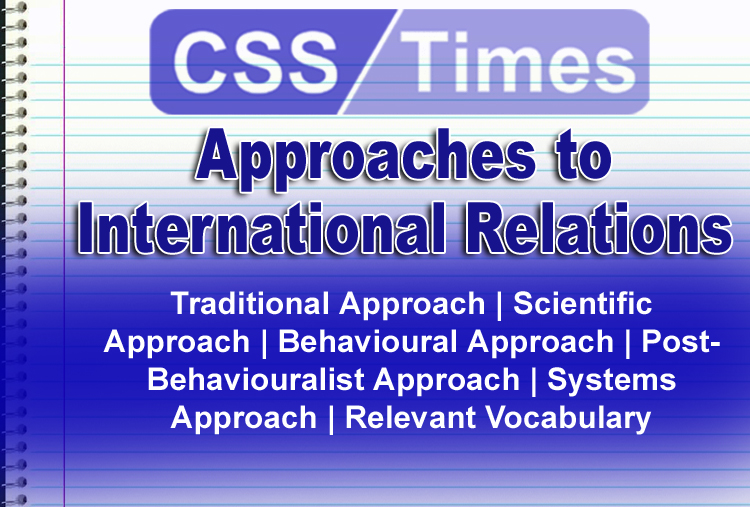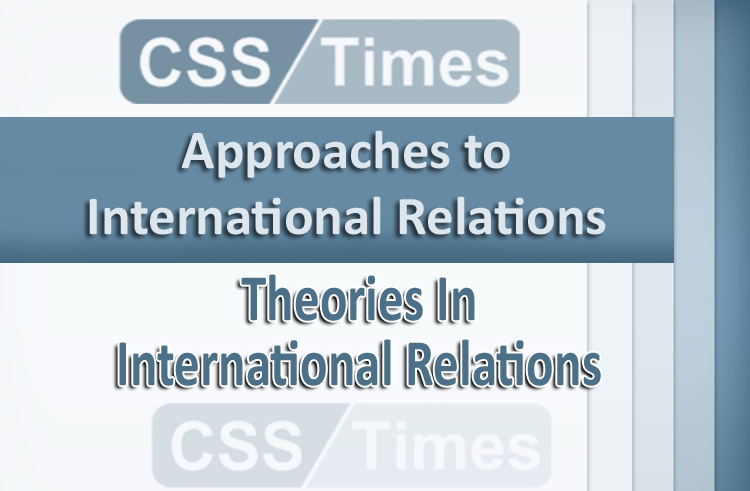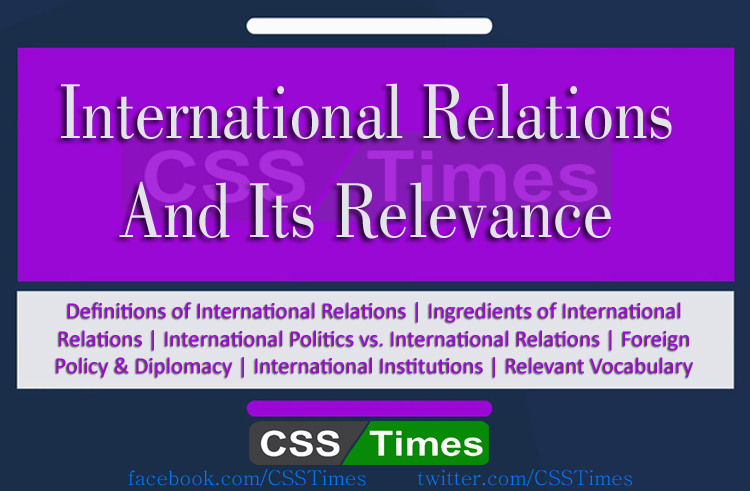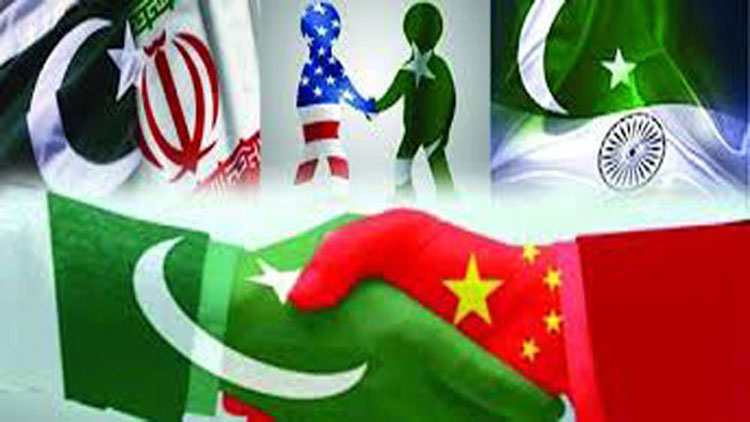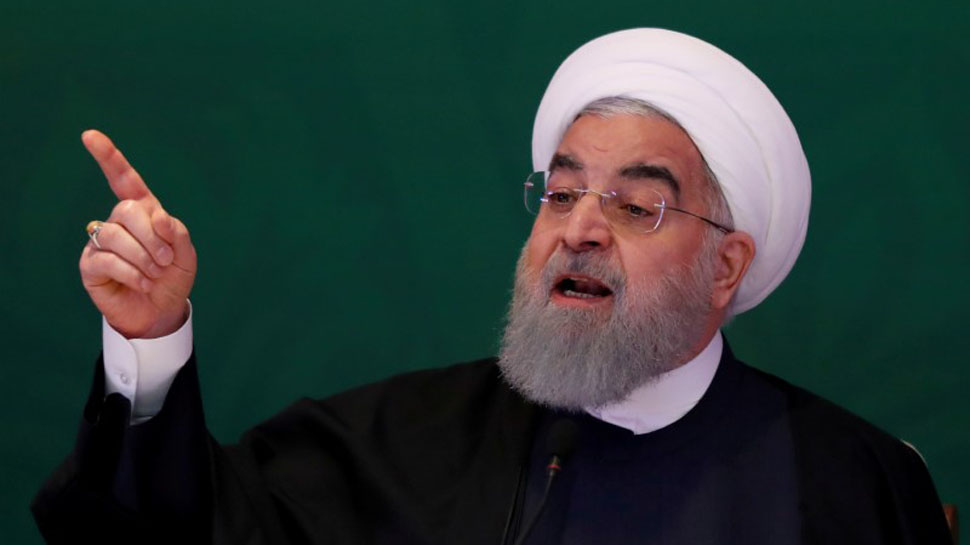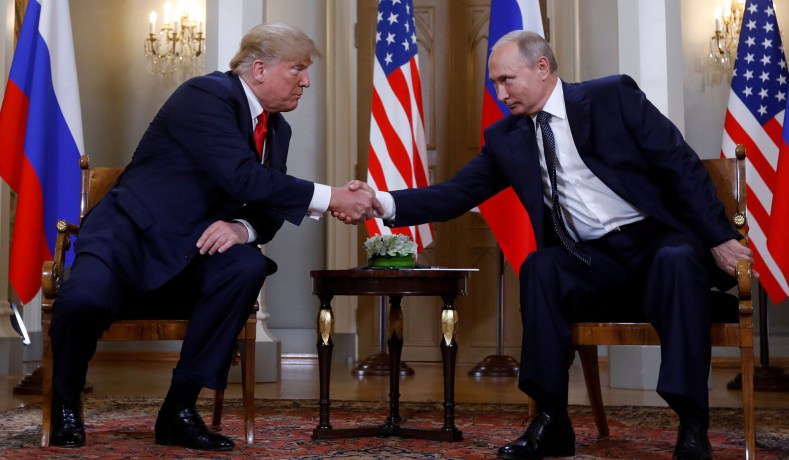[mks_button size=”large” title=”By: Iram Naseer Ahmad” style=”squared” url=”” target=”_self” bg_color=”#000000″ txt_color=”#ff0000″ icon=”” icon_type=”” nofollow=”1″]
One of my preferred objects about International Relations (IR) is its vibrant landscape. The World around us modifies persistently which holds policies in a state of fluctuation. Therefore, the most vital responsibility of a policymaker in Pakistan’s foreign office should be to perceive, feel, comprehend and counter to the vicissitudes that are taking place across the World. The alteration itself ensues to be the most imperative part of the dilemma. Because transformation adjusts previous philosophies, it makes new supermen and villains; it retains fresh and adversative dynamisms in action and finally modification may transform intimidations into prospects and new chances into dangers. As IR have been advancing since the Treaty of Westphalia (1648), the behaviour, approaches and possibility of foreign policy have also been shifting. In the age of globalisation, more and more areas of global and regional connections today decrease within the realm of foreign policy. Expressions like cultural diplomacy, defence diplomacy, digital diplomacy and economic diplomacy are currently measured as part and parcel of foreign policy.
Furthermore, in the existing period countries belief on numerous approaches such as hard power, soft power and smart power to attain foreign policy aims. Eventually, the drive and job of a state’s foreign policy is to proficiently employ its collective asset to achieve desired ends and avert succeeding pressures and to adjust in the inter-connected world, As the British independent policy advisor Simon Anholt stated, “the central fact of the age we live in is that every country, every market, every medium of communication, every natural resource is connected”.
So, in what way is our world varying or has transformed over the past epoch? The world has improved beyond our imagination. The origin of this variation lies in technology, its stomach in policies with the mind in economics. Historically, from the wreckages of the Cold War and the socialism of Mao Tse Tung, has surfaced a China, whose economic growth has occupied the world by surprise and a model for developing states. A China directed by the thoughts of Deng Xiaoping has outstripped Japan and Germany economically, stands at number two today, and is expected to exceed the United States in the forthcoming decade or so. Against this backdrop, in any argument on foreign policy, it needs to be considered that all states — as realism proposes — are rational not emotional players. Two more points need to be distinguished. Firstly, foreign policy is the replication of a country’s internal setting and secondly, states foreign policy vestiges neither immobile nor inelastic. As the eminent American realist policymaker Robert D Kaplan proclaims, “countries neither having perpetual associates nor everlasting foes” goes by, the triumph of foreign policy, therefore, varies on sagacity and in its close conformity with the grand stratagem, security policy and domestic policy of a country. Consequently, foreign policy, exclusively piloted by a country’s national interest, is recycled as an instrument by a given nation for dealing with the outside world in innumerable parts such as security, economy, culture and technology.
In this framework, the search for international harmony continued a foundation of Pakistan’s foreign policy as marked from the concept of Quaid and in the Article 40 of the Constitution of Pakistan, whose objectives are very coherent. Like, firstly, the state shall attempt to sanctuary and reinforce amicable relationships among Muslim republics grounded on Islamic concord. Secondly, to provision the mutual benefits of the peoples of Asia, Africa and Latin America, thirdly, to promote international peace and security, fourthly, promote friendliness relations among all countries, lastly, to inspire the settlement of international disputes by peaceful means and non-aggression. In this context, Pakistan has always been an important associate of the global community when it appears to the advancement and reinforcement of global amity. Pakistan has performed an important role as a forefront state in ending the hazard of terrorism and extremism which has materialised as the most disparaging risk to international peace in the current era. But the disastrous terrorist episode of 9/11 was a serious brink in the foreign policy of Pakistan. In fact, “9/11 came as a shockwave”. As former President Pervez Musharraf himself revealed, the event brought with it unparalleled challenges for Pakistan, which insisted to “absorb external pressure.”
But on the flip side, there is good news to share, that the world around Pakistan has changed much, in fact, is still fluctuating. With more players in the game, although the environment around us is much more complex on the one side, but competitive on the other side. I do believe in modern period the foreign policy of Islamabad should be objective, Pakistani policy makers should opt a new approach to avoid the past challenges and absorb the new opportunities with fresh outlook. Now the World is demanding to contribute positively from Pakistan as a state rather than to behave like a permanent liability on Superpower’s shoulders. Consequently, it should be a gigantic job for foreign policy makers in Pakistan particularly after the recent elections held on 25 July 2018, where electorate and international community have a lot of hope from Pakistan that the slogan of “Change” should be the actual change to operate in such a challenging international milieu. No doubt, in the literature of IR, foreign policy of developing countries is the upshot of limitations and openings and it rejoins differently as linked to the great powers. By contrast, political, economic and military liabilities of feeble countries are anticipated to play a rationale role in the planning of foreign policy because they cannot afford the pressure of great power in any critical situations. In the changing settings, Pakistan should divorce its cost oriented realist foreign policy and should adopt the idealist policy with a view of avoiding confrontation with her neighbors, emerging states and the United States. Pakistan should try to make friends than enemies in this age of connectivity. Pakistan should realise that an inflexible posture will deliver a foundation for the whole structure of global compression which might affect to smash the country’s national concern. This precludes the option of mature relationship with the outside World in which Pakistan can safeguard its national values and national security respecting the core principles of our foreign policy mentioned in the article 40 of the constitution.
I conclude my words, recommending to current diplomats and foreign policy makers that they should approach to opt soft policy but without any compromise on state sovereignty, would not only significantly reduce the external pressure but also covered Pakistan’s desperate economic needs by circumventing the country to become a potential prey of international loneliness. As the pendulum of power is shifting from West to East, now is a golden opportunity for statesmen of Pakistan to get maximum advantage from new international structure but domestic settlement is the key to get foreign policy objectives in the 21st Century.
The writer is PhD in History from University of the Punjab and expertise on Pakistan-China Relations, Foreign Policy of Pakistan and International Relations.
Originally published in: Daily Nation


